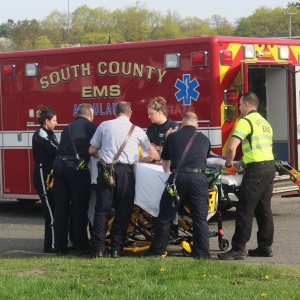Greenfield seeks feedback on uses for opioid settlement funds

Greenfield City Hall. STAFF FILE PHOTO/PAUL FRANZ
| Published: 07-14-2024 10:01 AM |
GREENFIELD — Having already received roughly $400,000 out of its $1.7 million in national opioid settlement funds, the city will soon hold a public hearing so residents can offer suggestions on how the money can best be used to combat the impacts of opioid addiction in Greenfield.
The nationwide opioid settlement, announced in July 2021, set Massachusetts up to receive more than $500 million of the $26 billion settlement, according to the Attorney General’s Office. The agreement, according to then-Attorney General Maura Healey, resolved investigations and litigation over pharmaceutical companies’ roles in fueling the opioid epidemic.
Since the city published its Opioid Settlement Community Feedback survey in the fall of 2023, Precinct 5 City Councilor Marianne Bullock said roughly 200 responses have been received from residents, outlining how they believe the settlement funds should be used. In the weeks ahead, Bullock said the city will establish a multi-disciplinary opioid advisory group that will recommend potential uses to Mayor Ginny Desorgher.
“I’m hoping that we can look at our existing services and determine where there might be gaps so that we can fund what’s going to be the most impactful in terms of prevention and harm reduction,” Bullock said. “There’s going to sort of need to be some expertise to figure out where that is.”
Choice Recovery Coaching Supervisor Sarah Ahern, an advocate for Greenfield’s recovery community, will serve on the advisory group. Ahern noted that she, an overdose survivor in long-term recovery, has lost friends and family to opioid addiction, and was pleased the state mandated that distribution of opioid settlement funds follows a community engagement process.
Discussing some of the potential funding uses brought up by her peers in recovery, Ahern said the creation of a low-threshold drop-in center — in which residents can get addiction recovery services without meeting the requirements of a sober home — was often suggested. She also noted that since the settlement money can be distributed to individuals or organizations through the creation of a grant fund, the city might also be able to fund funeral services for those who died from substance use.
“My heart and my wish is that [this advisory group] guides the process, but we create a consumer advisory board that is just people with lived and living experience, because the money is for us and it’s to help abate the different harms in different buckets that are allowable. It should be the people with lived experience guiding that,” Ahern said. “At every facet of the engagement process, there should be peers, people with lived experience, family members of loss that should be guiding that conversation and also voting on how the money is being spent. … We’re looking at a lot of money ... that could be used to do some amazing things.”
Ahern encourages members of the public with thoughts on how the city can best invest the funds to either reach out to the Mayor’s Office or contact her directly at endthestigma1@yahoo.com. She said after working as a recovery advocate across the state on settlement fund distribution, she is particularly impressed with Greenfield’s process.
Article continues after...
Yesterday's Most Read Articles
 Proposal for new six-town regional school district heads to DESE for approval
Proposal for new six-town regional school district heads to DESE for approval
 Hilchey bests Wolfram for Deerfield Selectboard seat
Hilchey bests Wolfram for Deerfield Selectboard seat
 Pushback: One ‘absentee dwelling unit’ for everyone?
Pushback: One ‘absentee dwelling unit’ for everyone?
 Greenfield native Kate Bitters runs Boston Marathon to support Dana-Farber and late father
Greenfield native Kate Bitters runs Boston Marathon to support Dana-Farber and late father
 Northfield man dies in Erving motorcycle crash; Bernardston man injured in Deerfield crash
Northfield man dies in Erving motorcycle crash; Bernardston man injured in Deerfield crash
 ‘We’ve lost a good one’: Donald R. Dwight remembered as passionate advocate for local journalism
‘We’ve lost a good one’: Donald R. Dwight remembered as passionate advocate for local journalism
“Our little city of Greenfield is so far the city that’s getting it right,” Ahern said. “I sit in these meetings with other people from all across the commonwealth, and they’re saying, ‘My city is not listening or won’t even answer my call, my city councilor told me that I was ridiculous, or they were going to buy a police cruiser with it.’”
Bullock said she plans to lead a public hearing on the settlement in August or September. She said she will hold multiple public engagement events before the advisory group recommends any spending items to the mayor.
“We have far more than a few hundred people that have been touched by substance use and addiction in this community, so I think that we need a higher level of engagement than just those numbers,” Bullock said, referencing the roughly 200 survey responses. “I also just think that a survey isn’t the end-all, be-all of community engagement by any means — it’s like the sort of tip of the iceberg to start engagement.”
Anthony Cammalleri can be reached at acammalleri@recorder.com or 413-930-4429.






 Ahead of renovations, Memorial Hall Association invites residents to take a seat from historic theater
Ahead of renovations, Memorial Hall Association invites residents to take a seat from historic theater Customer demand drives expansion of Flis Market’s pizza offerings
Customer demand drives expansion of Flis Market’s pizza offerings Protesters to state officials: Change clean energy siting rules in new Climate Action Plan
Protesters to state officials: Change clean energy siting rules in new Climate Action Plan 
